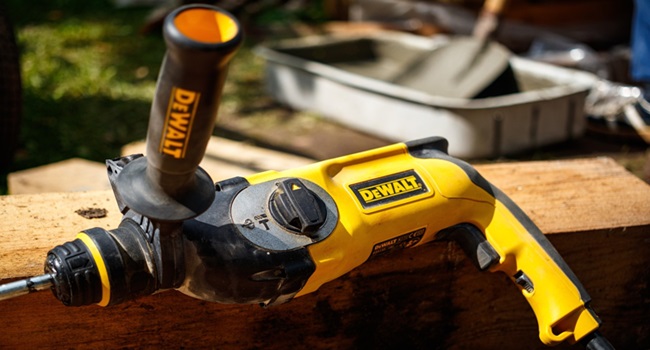Concrete core drilling is a highly specialized procedure used in construction, renovation, and various industrial projects. This technique involves the removal of a cylindrical section of concrete to create openings for pipes, wires, and other installations or for structural testing purposes. Whether you’re working on a large commercial project or a smaller residential task, understanding the core drilling process can ensure that your project is completed safely, efficiently, and with precision. In this post, we’ll cover everything you need to know about concrete core drilling, including its uses, the steps involved, and why hiring expert services is essential.
What is Concrete Core Drilling?
Concrete core drilling is a method used to remove a circular section, or “core,” of concrete from a structure. The process involves using a specialized drill fitted with a diamond-tipped core bit that can cut through tough materials like concrete, masonry, and even reinforced steel. This technique is commonly employed in construction projects to create precise openings for plumbing, electrical conduits, HVAC systems, or even to test the strength and composition of the concrete itself.
Core drilling can be performed on walls, floors, and ceilings, and is often used when remodeling or upgrading existing structures. It allows for a high level of accuracy and minimal disruption to the surrounding materials, making it an essential method for contractors and engineers working in the building industry.
How the Core Drilling Process Works
The core drilling process is straightforward but requires skill and precision to achieve the desired results. The first step involves identifying the exact location where the core needs to be drilled. Accurate measurements are critical, as even minor errors can lead to structural issues or wasted time. After the location is marked, a specialized core drill with a diamond-tipped bit is positioned and secured.
Once the drill is in place, it is operated at a controlled speed, cutting through the concrete in a circular motion. The diamond core bit grinds through the concrete, creating a clean, smooth hole while minimizing vibrations that could damage the surrounding structure. The core, or cylinder of concrete, is then removed, leaving a precise hole for the intended installation or testing purpose.
Depending on the size of the hole and the density of the material, the core drilling process can vary in duration. Thicker concrete or reinforced steel can take longer to drill through. Additionally, water is often used during drilling to cool the drill bit and reduce dust, making the process safer and more efficient.
Common Uses for Concrete Core Drilling

Concrete core drilling is widely used across various industries and for multiple applications. Some of the most common uses include:
- Plumbing and Electrical Installations: Core drilling is used to create precise openings for pipes, conduits, and electrical wiring. This ensures that the necessary installations are integrated seamlessly into the structure.
- HVAC Systems: Large holes may be required for the installation of heating, ventilation, and air conditioning systems.
- Structural Testing: Engineers often use core drilling to extract samples of concrete for analysis, allowing them to assess the integrity and strength of a structure.
- Renovations and Remodeling: Core drilling is essential for creating new openings in existing structures without causing significant disruption to the surrounding materials.
- Anchor Installations: Holes are drilled to secure anchor bolts used in construction and infrastructure projects.
The versatility of core drilling makes it an indispensable technique for both new construction projects and updates to existing buildings.
Safety Precautions for Core Drilling
Concrete core drilling is a complex and potentially hazardous task if not performed correctly. Therefore, it’s essential to follow strict safety protocols to prevent injuries and damage to the structure. Some critical safety precautions include:
- Proper Training: Operators must be trained to use core drilling equipment safely and effectively. Understanding the machine’s mechanics and the right technique can help avoid accidents. For added protection during drilling, it’s essential to shop safety glasses to shield your eyes from debris and dust, ensuring safer working conditions.
- Personal Protective Equipment (PPE): Workers should wear appropriate PPE, including hard hats, safety glasses, gloves, and hearing protection, to minimize risks.
- Dust Control: Using water or a dust collection system during drilling is essential to reduce airborne particles, which can be harmful if inhaled.
- Secure the Area: The drilling area should be cordoned off to prevent unauthorized access and protect workers and bystanders from debris or falling materials.
Adhering to these safety measures ensures that the core drilling process is completed without incident and that workers are protected at all times.
The Benefits of Expert Services

While some smaller core drilling projects may be manageable in-house, larger or more complex jobs should always be handled by professionals. Hiring a company that specializes in concrete core drilling services provides several advantages. Experts come equipped with the right tools and expertise to ensure precision, safety, and efficiency.
Using this service can save time and reduce costs by avoiding mistakes that could lead to costly repairs or delays. Professionals also follow industry best practices, ensuring that the drilling process is carried out with minimal disruption to the surrounding structure. Whether you’re working on a large commercial project or a residential renovation, investing in expert core drilling services is the best way to achieve accurate, high-quality results.
Why Precision Matters in Core Drilling
Precision is one of the most critical aspects of concrete core drilling. Even a small miscalculation can lead to errors that compromise the integrity of the structure. Precise drilling ensures that holes are placed exactly where they’re needed, whether for plumbing, electrical wiring, or structural analysis.
Precision is especially crucial in projects that involve reinforced concrete or require large openings for HVAC systems. In these cases, an accurate drill ensures that the structural integrity of the building is maintained and that the installed systems function correctly. Using advanced core drilling equipment and professional expertise is essential for ensuring that the work is done right the first time.
Concrete core drilling is a crucial part of many construction and renovation projects, providing a precise and efficient way to create openings in concrete structures. From plumbing installations to structural testing, the uses for core drilling are vast, making it an indispensable tool for contractors and engineers alike. By understanding the core drilling process and recognizing the importance of hiring expert services, you can ensure that your project is completed safely, efficiently, and to the highest standards of quality.




























